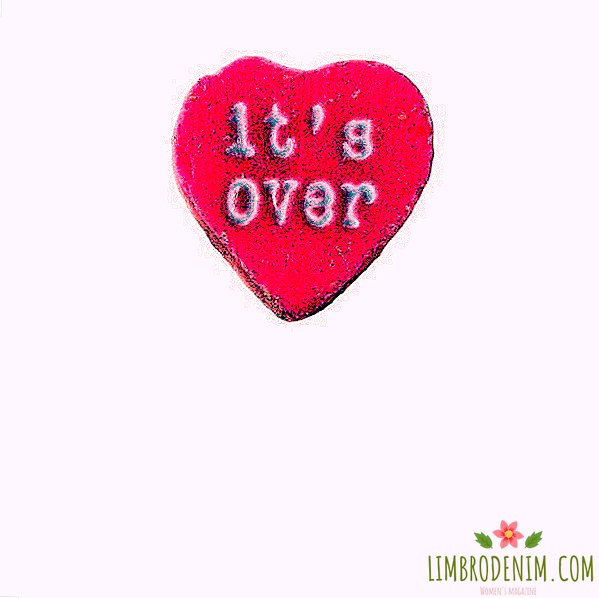MeToo Year: Victory or Defeat?

Dmitry Kurkin
Since the publication of the article in The New York Times, which marked the beginning of the fall of Harvey Weinstein and the growth of movements fighting sexual harassment, one year old. This is not exactly the exact cutoff in the history of #MeToo (the same hashtag from the submission of Alyssa Milano sold out a little later, October 15, 2017), but a very symbolic date. The Weinstein affair was not the first loud harassment process, as well as #MeToo was not the first large-scale campaign against harassment: it suffices to recall at least a similar flash mob “I'm not afraid to say,” revealing hundreds and thousands of stories of sexual abuse. However, at the very beginning of the investigation, the object of which was not just a public person, but one of the most influential people in Hollywood, it was obvious that the consequences of the scandal would be much more serious. The expectations were justified: the discussion of the problem of harassment reached a truly global level.
Snowball effect
The snowball, called the “Weinstein Effect”, led to the resignations of people from key positions in large corporations and departments: among them CBS Board of Directors Les Munves (resigned less than a month ago, promising to donate $ 20 million to organizations that protect women's rights), the head of animation Pixar Studios John Lasseter and Amazon Video Head Roy Price. Numerous accusations of harassment and unacceptable sexual behavior actually put an end to the career of director James Toback, actor Kevin Spacey and comedian Louis C. Kay (the latter, however, tries to return to the stand-up). The lawsuits against actor Bill Cosby and Olympic team doctor Larry Nassar resulted in the fact that both of those accused of numerous cases of sexual violence received lengthy prison sentences - and this is also a direct consequence of #MeToo.
The movement for the year managed to blame for the "witch hunt" (as if no one meeting in American companies is now taking place behind closed doors, and ethics commissions get too many complaints), in creating a "cult of the victim" and an atmosphere of suspicion, in killing passion and spontaneity in sex, in the abolition of the presumption of innocence and independence of the press. But one way or another, the “principle of consent” has become almost constitutional for a year. And the right to vote appeared to all who had been silent for years about experiencing sexual violence, fearing public condemnation and stigma of the victim. Time magazine dedicated one of its covers to "those who broke silence," calling them people of the year.
National features
#MeToo has resonated in many different countries (local anti-harassment campaigns are called "Korean #MeToo" or, for example, "Brazilian #MeToo") and continue to resonate. Its own #MeToo just recently launched in India, recognized as one of the most unsafe countries for women in the world.
Like a year ago in the United States, in India, the scandal first erupted in the film industry, but didn’t limit itself to Bollywood and turned into a discussion of harassment as such. It became a kind of template for #MeToo, and you can understand why: starting a conversation is much easier when the center of the conversation is either a recognizable figure (or even a general favorite, as was the case with Kevin Spacey), or someone practically invulnerable by virtue of his social status or status (as a deputy Leonid Slutsky or the same Weinstein). However, in almost every country, campaigns against harassment lay down on their soil. And by who and how opposes harassment in a particular society, we can draw conclusions about the balance of power.
Thus, in South-East Asia (in particular, South Korea and Japan), the discussion of harassment inevitably overlapped the discussion about gender roles, the cult of “homemaker” and the cultural code, which practically deprives women who face harassment from speaking. "The lack of legal security, coupled with cultural pressure that obliges you to endure cruel treatment and carry your burden, makes young women vulnerable," explains the lawyer Kazuko Ito. "The Japanese are taught not to say no since childhood."
In the countries of the Middle East, #MeToo has grown up with a religious agenda. The hashtag MosqueMeToo can be found stories about harassment, told the participants of the annual pilgrimage to Mecca. It turned out that these were not isolated cases at all, however, people faced with harassment during the hajj did not dare to talk about their experience for a long time, believing that no one would believe them, or fearing to provoke an outbreak of Islamophobia.
In France, the campaign against harassment (there were many thousands of meetings against harassment) met with resistance from those who saw an attempt on sexual freedom in #MeToo, won half a century ago. And although the open letter in defense of the "freedom to pester women" signed by Catherine Deneuve and hundreds more actresses cannot be considered a general French point of view, this is also an important detail of the national controversy.
Examples of countries where the fight against harassment has stalled, without receiving adequate support, are also indicative - in the sense of understanding personal boundaries and code of conduct. This applies to Italy, where, as in Russia, harassment lawyers usually push the argument “to blame themselves” (activist Lorella Zanardo explains this with a Catholic education: "[The woman] is either a good wife and a saint, or you behave freely - and then you don’t take seriously "). This applies to Brazil, where the line separating harassment from informal communication is considered much more blurred.
Finally, in Russia, the word "harassment" sounded where it was possible to count on hearing it at the very least - in the State Duma. And although the outcome of the scandal with the deputy Slutsky could have been foreseen in advance, an organized boycott by the media and the recall of their correspondents were at least a surprise. In this case, shop solidarity turned out to be a side effect that multiplied the Russian achievements of #MeToo: some publications during the year managed to change their stance on women's issues from discriminating to advocacy, and the chief editor of the “male” press even began to speak publicly, revealing sexism. In addition, a precedent has been created that can be referenced in the future.

Sad holiday?
The #MeToo anniversary can be called blurry - and not only because the first serious split occurred in the movement itself (two active participants #MeToo, Rose McGowan and Asia Argento, quarreled after the second, in turn, was accused of seducing a minor actor Jimmy Bennett). Despite violent protests by activists of the movement and those who sympathize with them, Brett Kavano, accused of harassment, was approved for the post of one of nine judges of the US Supreme Court. Significantly, the Senate hearings about Judge Clarence Thomas, who was also accused of harassment, ended exactly the same in 1991.
Here we would conclude that for twenty-seven years the public attitude towards harassment has not changed fundamentally, and the year of active struggle has ended with nothing - but this, of course, is not so. Firstly, it would be very naive to expect a quick and easy victory. The working environment or industry, where harassment has been considered for decades if not as a norm, then as something unsuitable and not worthy of attention, has not been re-educated in just one year. Big change takes time and perseverance. Secondly, local failures and problems within the movement itself do not cancel a much more important result: a public discussion about harassment (including at the level of newly created ethical commissions), which a couple of years ago seemed something that will come later in the distant future , has become a reality.
PHOTO: Getty images




